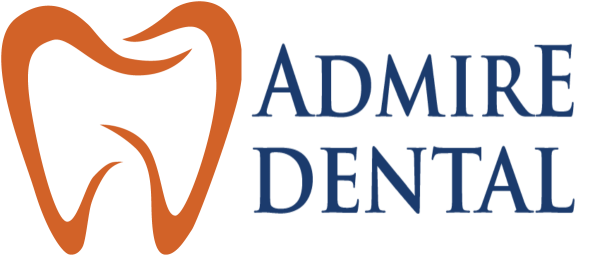Surgical Instructions
At Admire Dental patient comfort is our top priority. We often find that some patients feel anxiety prior to a surgical procedure. The following is designed to answer some common questions about dental surgeries. Of course if you don’t find what you are looking for here, or have additional questions, you should call Admire Dental right away. We want to ensure that our patient ate comfortable and well-informed.
What can I expect after surgery?
• Minor bleeding and “oozing” for 1-2 days. • Pain and discomfort slowly improving in 1-5 days. • Swelling for 1 week becoming worse on the 2nd and 3rd day after surgery. • Tightness and stiffness to the jaw and joint areas.
What are my post-operative instructions?
• After the first 24 hours following surgery, rinse gently with warm salt water after every meal. This can continue 1-2 weeks. Brush gently avoiding the extraction sites for 1-2 weeks. • You may be biting on gauze when you leave the clinic. This gauze should remain for 30 minutes. After that, you may take the gauze out and observe the extraction area. If it is bleeding like a fresh wound (bright red, dripping blood) bite on additional fresh gauze for approximately 30 more minutes. Repeat as necessary until the area is slight oozing and blood is dark & clotting. Remember a little blood and a lot of saliva will look like a lot of blood, usually it is just a lot of saliva. • Do not smoke, spit, drink through a straw, or drink carbonated beverages for 3 days after surgery. • No rinsing for the first 24 hours. • If you had upper teeth removed avoid blowing your nose and sneezing for the first week (if you must sneeze, do so with your mouth open to prevent sinus damage). • Use an ice pack to reduce swelling and pain. Ice packs can be applied for 20 minutes on and 10 minutes off for the first 24 hours (while awake). After the first 24 hours, discontinue ice and use warm moist heat.
What should my activity level be?
If you have received IV sedation do not drive for 24 hours or while taking Narcotics.
Are there diet restrictions after surgery?
Your first day will consist of soft, cool foods such as: Jello, pudding, yogurt, applesauce, mashed potatoes, cottage cheese and ice cream. Soup is fine as long as it is room temperature only. Around day 3-4 you may resume regular diet as tolerated, but should your jaw start to ache, resume soft diet for a couple more days to rest the jaw muscle.
How do I manage pain after surgery?
You may be given pain medication or be directed to use an over the counter pain medication, either will help with discomfort and painful swelling (inflammation). Be sure to take as directed.
What other medications will I have to take?
• You may be given a prescription for antibiotics. Be sure to take them as directed. • Unless otherwise instructed, continue taking any medications prescribed by your primary care physician. • After oral surgery procedures, pain is best managed with scheduled doses of NSAIDs such as Ibuprofen (up to 3200 mg daily) and Acetaminophen (up to 3000 mg daily). • In addition to the above medications, short term opioids may be prescribed by your provider. We recommend that you limit opioid use to instances when you feel severe pain (7/10 or more) despite scheduled doses of NSAIDs and acetaminophen. • Use of opioids (even short term use) may lead to physical dependence and addiction. • To dispose of used opioids, return to opioid take back clinics or pharmacies. You can also mix it with coffee grounds in a sealed bag and dispose of it in the garbage. Do not flush opioids down the drain.
What follow-up care will I receive?
• You will be given an appointment to return to the clinic for a post- operative check before you are discharged from the hospital. This will usually be about 2 weeks after surgery. • Write down and bring any questions you have to this appointment. • If you are unable to keep the appointment, please be sure to call and reschedule.
When should I call my doctor?
• If you have any side effects to medications; such as, rash, nausea, headache, vomiting, increased irritability, or constipation. • If you have an oral temperature over 100.5 degrees. Check to make sure you are getting enough liquids. Dehydration can cause the body temperature to rise.
